Coronavirus: Covid-19 outbreak meat plant to reopen
- Published
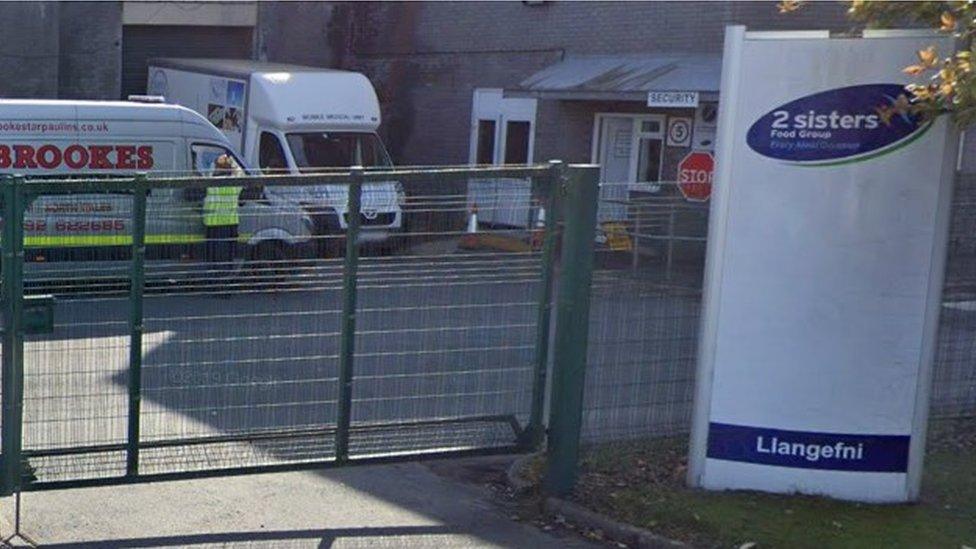
The 2 Sisters plant in Anglesey has been closed due to the outbreak
The meat processing factory at the centre of a Covid-19 outbreak in north Wales will partially reopen later.
Some 217 coronavirus cases were found among the 560 staff at 2 Sisters on Anglesey and the chicken plant was temporarily shut for two weeks.
A , external and reopening schools on the island was delayed.
2 Sisters said while the plant reopens on Friday, gradual meat production will not start until Monday.
In a letter to Annwen Morgan, Anglesey council's chief executive, 2 Sisters owner Ranjit Singh Boparan thanked the council for its support and spoke of the "frustration and disappointment" at the factory when the cases emerged.
"You will be aware of the measures we already had in place to keep our people safe," he wrote. "But clearly no framework is infallible."
What has happened in Wales?
There have been 634 confirmed Covid-19 cases at meat plants - 283 at Rowan Foods in Wrexham, 134 at Kepak in Merthyr Tydfil and the 217 at 2 Sisters.
Public Health Wales (PHW) thought about a , external to keep the incident under control but unlike the UK's first local lockdown a few days later in Leicester, there was no evidence of "community transmission".
2 Sisters said it had introduced thermal temperature checks and employed marshals to ensure social distancing was maintained but the plant - the smallest of the food giant's 12 UK warehouses - was shut on 18 June as all staff had to self-isolate.
An extensive programme of testing followed where the number of Covid-19 cases emerged.
While all staff have been at home on full pay, deep cleaning has taken place and swabs have been taken throughout the factory during the shutdown, all of which have come back negative.
Wales' First Minister Mark Drakeford will see if "general lessons" can be learned as why food plants are "vulnerable to outbreaks"
How will the reopening happen?
The company said the reopening would be "low key" and "low capacity".
There will be no meat production until next week while management and staff understand and enforce new safety and hygiene measures.
When they do start processing chicken for local authorities, hospitals, restaurants and small businesses, production levels will be low before "slowly ramping it up to full capacity as the weeks progress".
2 Sisters said its first priority would be intensive awareness sessions for all staff.
It said it realised some workers would have tested positive and may believe they have immunity to coronavirus, but "the reality is we don't know this to be true".
Mr Boparan wrote: "We are more than aware of our responsibility within the community to ensure we do the right things and keep everyone as safe as possible.
"Swiftly closing our factory was the first step in this, and you have seen for yourselves over the past two weeks the hard work and dedication my team have put in to ensure we leave no stone unturned."
Who are 2 Sisters?
Birmingham-based 2 Sisters Food Group is one of the UK's largest food producers - with brands including Fox's Biscuits and Holland's Pies - and employs about 18,000 people with an estimated £3bn annual turnover.
It supplies major outlets including Marks & Spencer, KFC, Asda and Aldi - although the company said none of its major customers are supplied from the Anglesey plant.
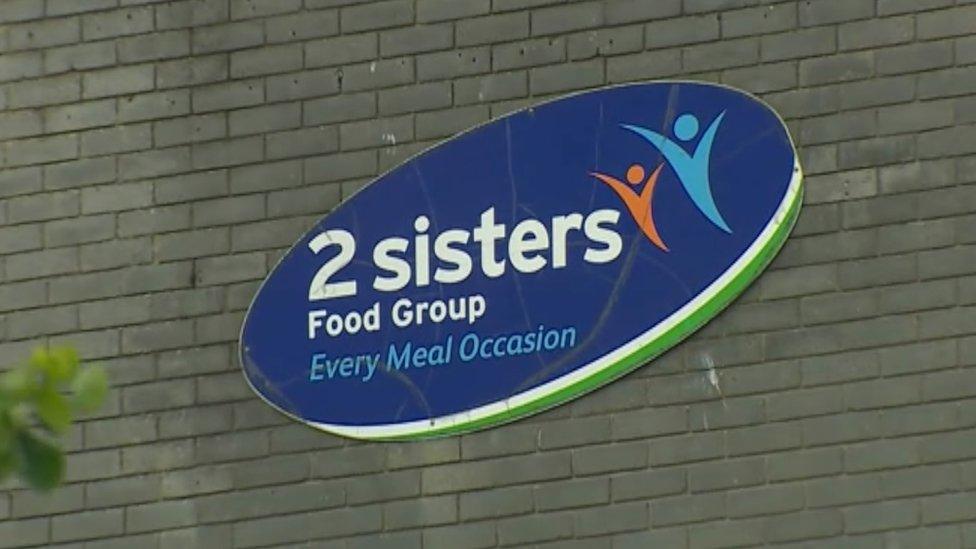
2 Sisters produces about a third of all the poultry products consumed each day in the UK
Why are meat factories susceptible to outbreaks?
Some of the biggest outbreaks of Covid-19 worldwide have been in meat processing factories and slaughterhouses.
More than 2,000 people contracted the virus after an outbreak in a German factory - resulting in 21 deaths.
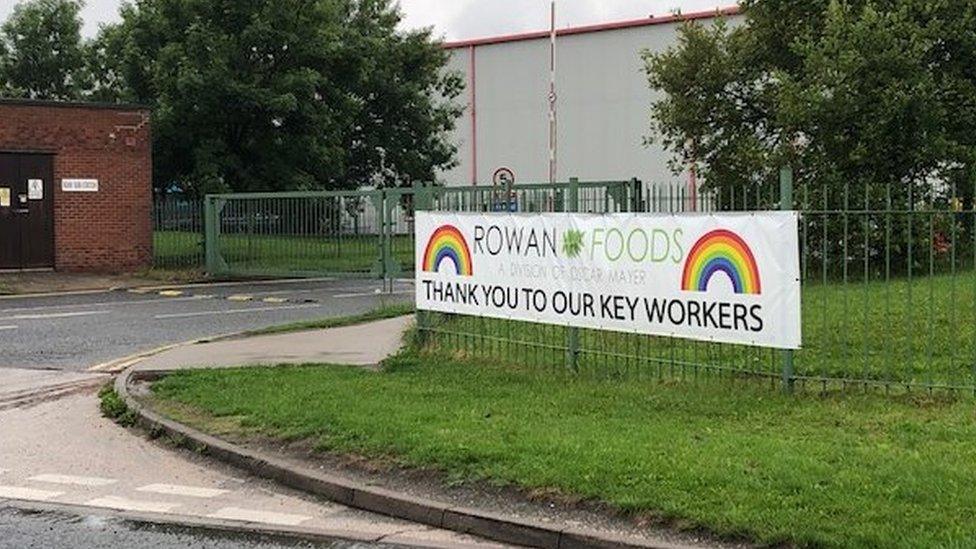
There have been 237 Covid-19 cases linked to the Rowan Foods meat plant in Wrexham
In Ireland, a special national outbreak team has been put in place to deal with the large number of clusters at meat plants.
There are various theories about why meat plants are particularly susceptible to coronavirus outbreaks.
But experts say contributory factors are likely to be a combination of staff working in close proximity while doing very physical work, indoors, in a cold environment where the virus is known to thrive.
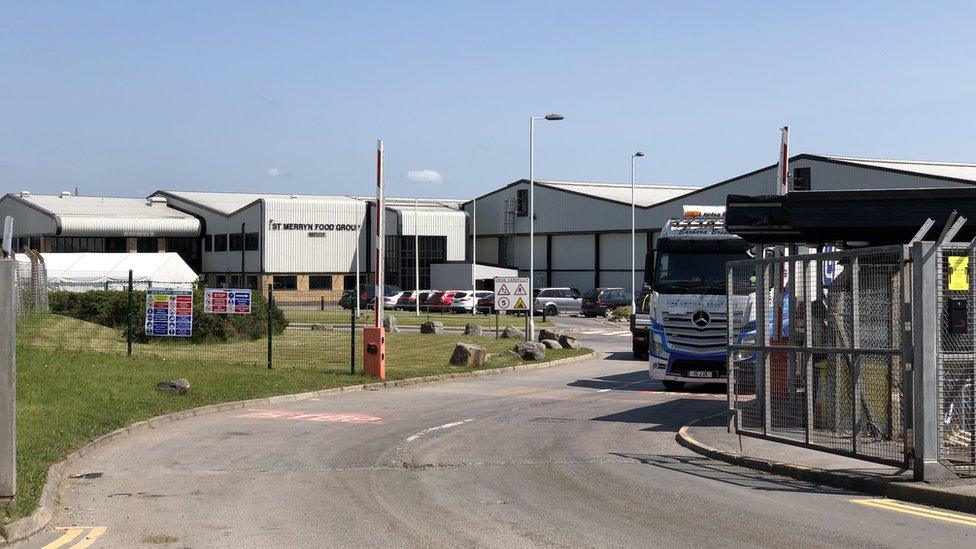
The Kepak meat plant in Merthyr Tydfil has had 130 coronavirus cases
A BBC investigation found workers at the Rowan Food factory in Wrexham highlighted the difficulty of social distancing and why meat processing plants are a hotbed for the virus.
What do the authorities say?
Anglesey's member of the Welsh Parliament said he has been in talks with the Health and Safety Executive and it is "confident that measures are in place."
"Just as importantly, they tell me they'll be in there after reopening, monitoring how changes are being implemented," said Ynys Mon MS Rhun ap Iorwerth.
The union Unite previously claimed production line work at the plant meant adhering to the distancing rule had been "virtually impossible" and there had been the "usual" concerns from staff about "social distancing and face masks".
In Wales, employers are required by law to do everything they can to make sure workers can socially distance while in the workplace, or face a fine of up to £120.
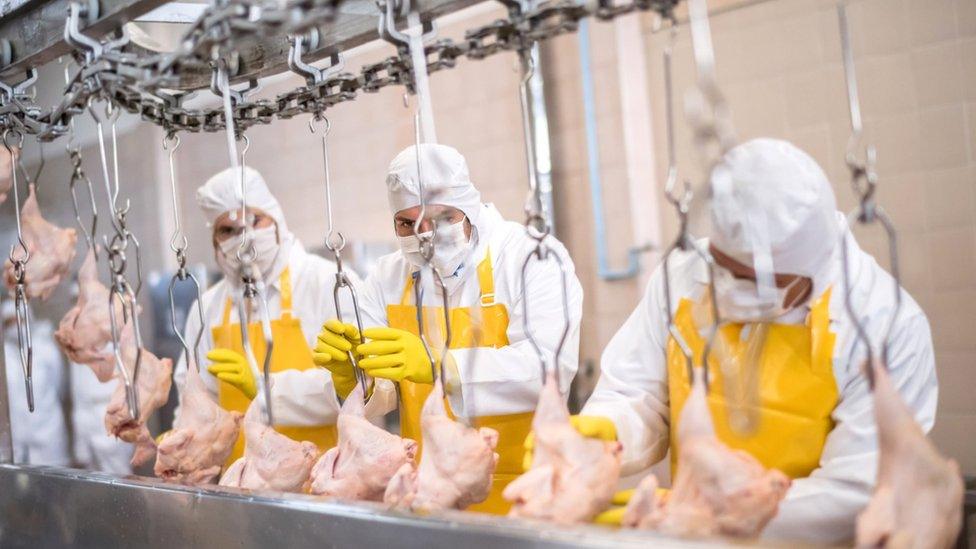
There have been many meat processing plants at the centre of Covid-19 outbreaks
PHW accepts this may not always be possible, but Unite said 2 Sisters have given them "reassurances" the factory is safe to reopen.
"The company have recognised that they need the help of their staff in getting back to business," said Paddy McNaught, Unite's regional organiser.
"They've been honest and open with us as we worked to put new procedures in place."
Is food safe?
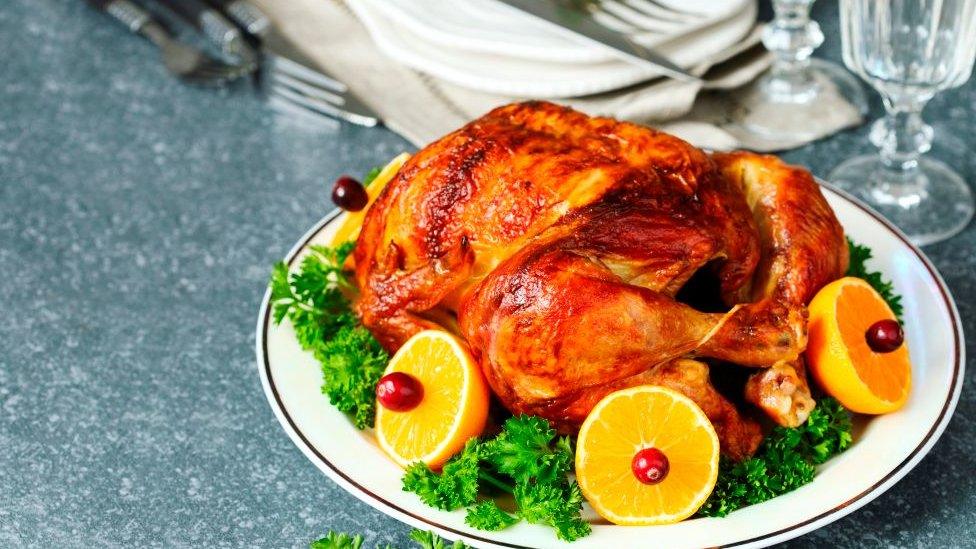
The Food Standards Agency said there was no reason food would not be safe
The Food Standards Agency said it was "very unlikely you can catch coronavirus from food" as the virus is a respiratory illness.
The agency's Caroline Kitson said coronavirus was "not known to be transmitted by exposure to food or food packaging".
- Published2 July 2020

- Published30 June 2020
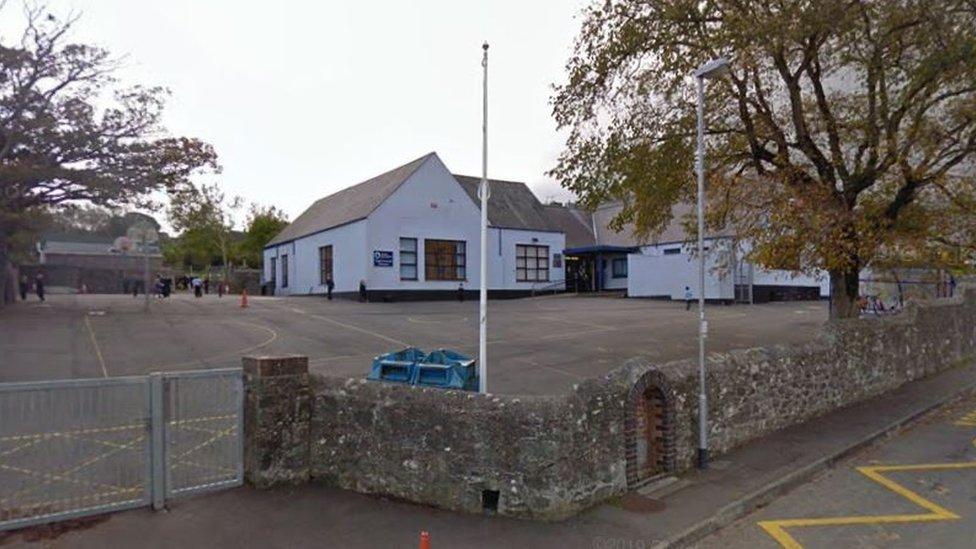
- Published30 June 2020

- Published29 June 2020

- Published26 June 2020

- Published25 June 2020
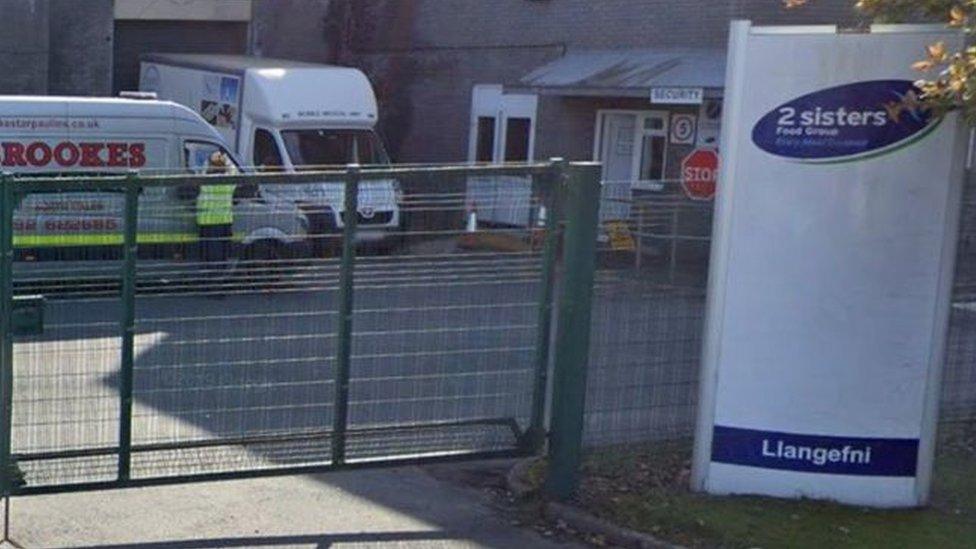
- Published23 June 2020

- Published19 June 2020
